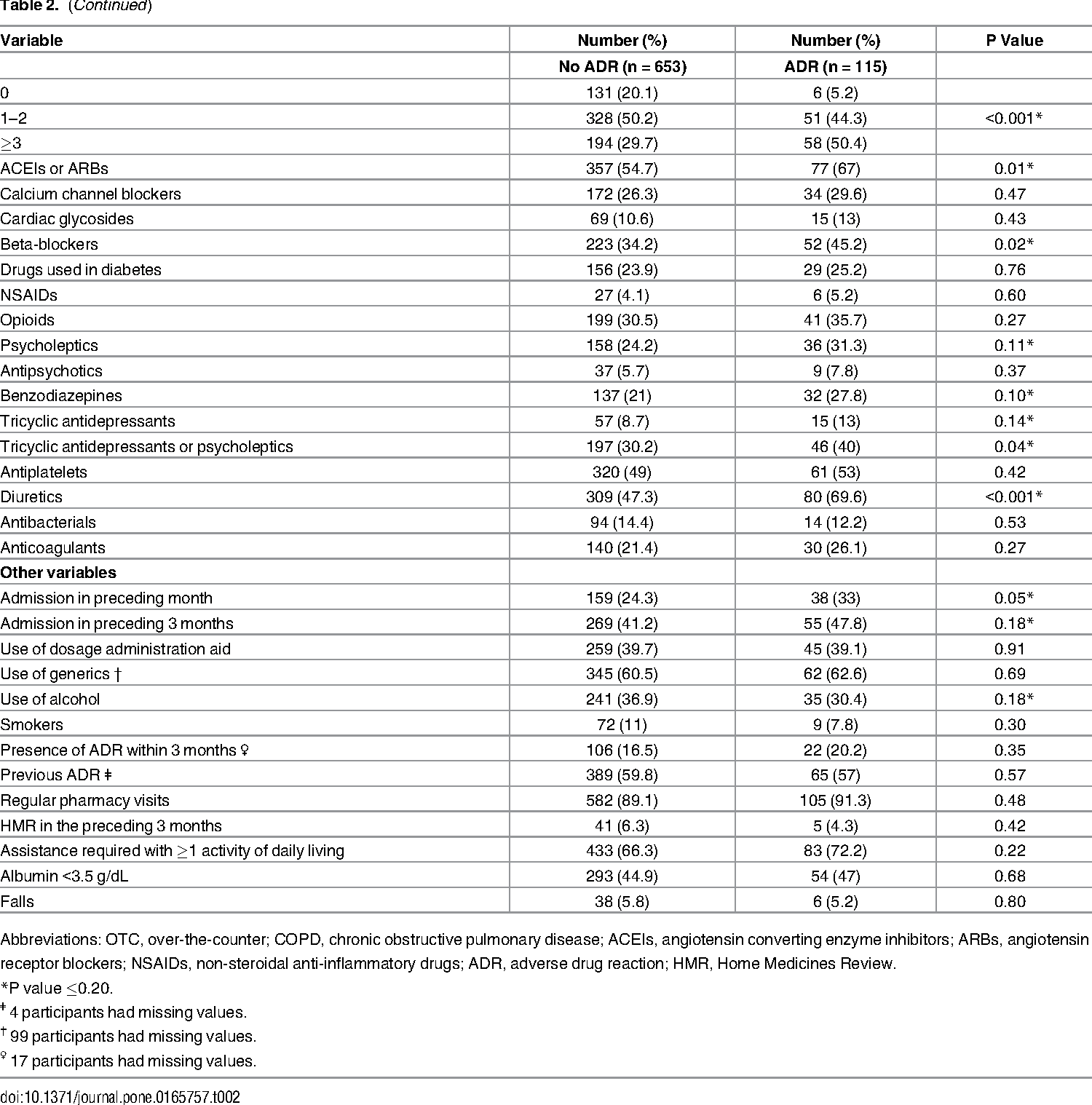
Annals of Pharmacotherapy, Ahead of Print.
Background: The relationship between the medication regimen complexity index (MRCI) and adverse drug reaction (ADR)-related hospital admissions has not yet specifically been investigated. Objective: To evaluate the MRCI and compare with medication count for prediction of ADR-related hospital admissions in older patients. Methods: This was a retrospective analysis of a prospectively collected convenience sample of 768 unplanned medical admissions of Australians aged 65 years old and older. The sample consisted of 115 (15.0%) ADR-related unplanned hospital admissions and 653 (85.0%) non–ADR-related unplanned medical admissions. The MRCI score was calculated from the medical records and analyzed to predict ADR-related hospital admissions. Results: The cohort had a median age of 81 years, 5 comorbidities, and 11 medications, with a slight majority of women. The MRCI score was not significantly different in patients who had ADR-related admissions compared with other medical admissions—38.5 versus 34.0, respectively; Wilcoxon Rank Sum test W = 33 522; P = 0.067. The medication count was significantly different between the ADR-related admissions compared with other medical admissions: 12 versus 10; W = 32 508; P = 0.021. However, the medication count was not a strong predictor of ADR-related admissions; unadjusted odds ratio = 1.044; 95% CI = 1.006-1.084. Conclusion and Relevance: The MRCI score did not discriminate between ADR-related admissions and other medical admissions despite taking time to calculate with potential for inconsistent application. Medication count is more readily applicable with marginally greater relevance in this cohort; however, both measures do not appear to be useful when used alone for clinicians to identify patients at risk of ADRs.
Background: The relationship between the medication regimen complexity index (MRCI) and adverse drug reaction (ADR)-related hospital admissions has not yet specifically been investigated. Objective: To evaluate the MRCI and compare with medication count for prediction of ADR-related hospital admissions in older patients. Methods: This was a retrospective analysis of a prospectively collected convenience sample of 768 unplanned medical admissions of Australians aged 65 years old and older. The sample consisted of 115 (15.0%) ADR-related unplanned hospital admissions and 653 (85.0%) non–ADR-related unplanned medical admissions. The MRCI score was calculated from the medical records and analyzed to predict ADR-related hospital admissions. Results: The cohort had a median age of 81 years, 5 comorbidities, and 11 medications, with a slight majority of women. The MRCI score was not significantly different in patients who had ADR-related admissions compared with other medical admissions—38.5 versus 34.0, respectively; Wilcoxon Rank Sum test W = 33 522; P = 0.067. The medication count was significantly different between the ADR-related admissions compared with other medical admissions: 12 versus 10; W = 32 508; P = 0.021. However, the medication count was not a strong predictor of ADR-related admissions; unadjusted odds ratio = 1.044; 95% CI = 1.006-1.084. Conclusion and Relevance: The MRCI score did not discriminate between ADR-related admissions and other medical admissions despite taking time to calculate with potential for inconsistent application. Medication count is more readily applicable with marginally greater relevance in this cohort; however, both measures do not appear to be useful when used alone for clinicians to identify patients at risk of ADRs.
